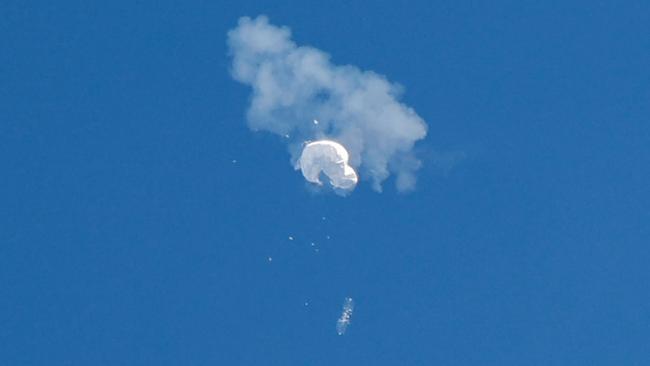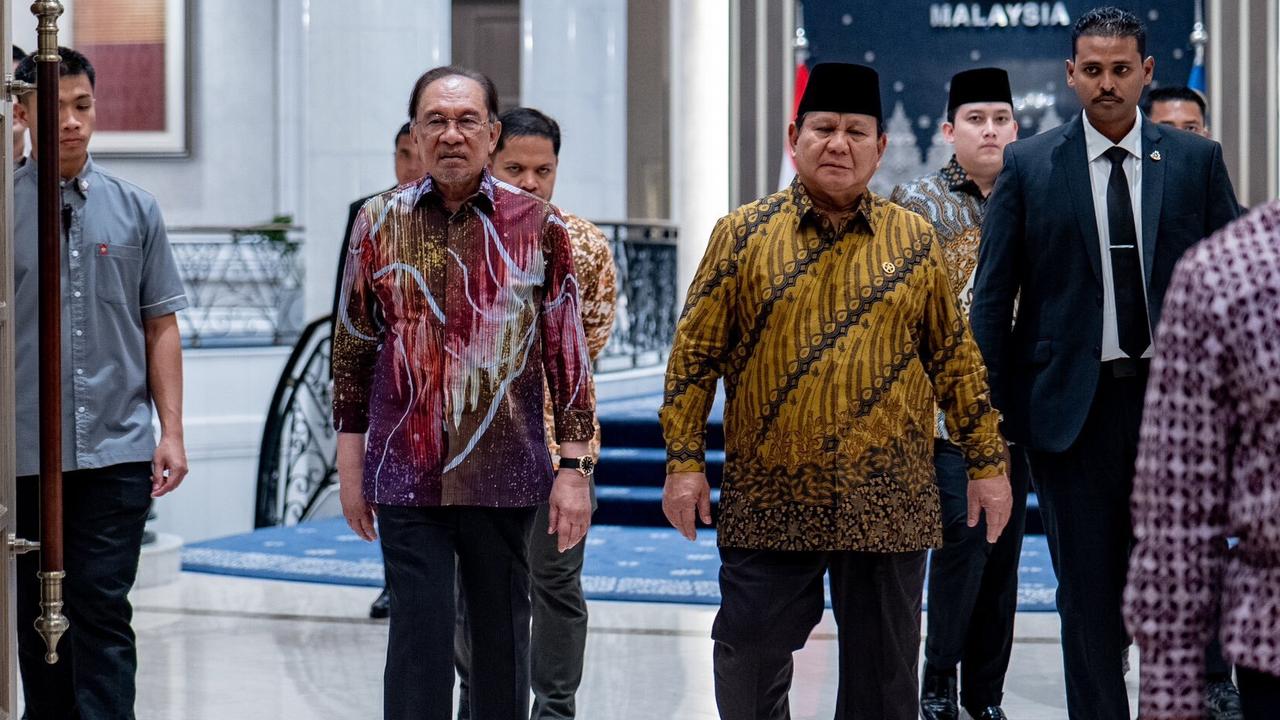US shoots down Chinese spy balloon, drawing Beijing’s ire
China on Sunday angrily voiced its ‘strong dissatisfaction’ at the move and said it may make ‘necessary responses’.

The Biden administration lauded the Pentagon for shooting down an alleged Chinese spy balloon off the US Atlantic coast, but China on Sunday angrily voiced its “strong dissatisfaction” at the move and said it may make “necessary responses”.
The craft flew for several days over North America before it was targeted off the coast of the southeastern state of South Carolina with a missile fired from an F-22 Raptor fighter-bomber, Pentagon officials said, falling into relatively shallow water 14m deep.
US Secretary of Defence Lloyd Austin called the operation a “deliberate and lawful action” that came in response to China’s “unacceptable violation of our sovereignty”. But China’s foreign ministry blasted the US action, saying the downing of the “civilian” aircraft was “clearly overreacting and seriously violating international practice”.
Saturday afternoon was the military’s first chance to take down the balloon “in a way that would not pose a threat to the safety of Americans,” a senior defence official said, while still allowing authorities to collect the fallen debris from US waters.
In video posted to social media, the balloon appeared to disintegrate in a white puff before its remnants dropped into the Atlantic Ocean below.
Twitter user Haley Walsh posted that she “heard and felt the explosion” in Myrtle Beach, a resort town in South Carolina.
President Joe Biden, who earlier on Saturday had promised “to take care” of the balloon, congratulated the fighter pilots involved.
“They successfully took it down. And I want to compliment our aviators who did it,” Mr Biden said in Maryland.
The controversy erupted on Thursday, when American officials said they were tracking a large Chinese “surveillance balloon” in US skies. That led Secretary of State Antony Blinken on Friday scrapping a trip to Beijing designed to contain US-China tensions.
After initial hesitation, Beijing admitted ownership of the “airship,” but said it was a civilian weather balloon that had been blown off course and that it “regrets” the episode.
But after it was shot down, the foreign ministry expressed China’s “strong dissatisfaction and protests against the use of force by the United States to attack the unmanned civilian airship”. Instead of responding in a “restrained manner,” the ministry said, “the United States insisted on using force, clearly overreacting.” “China will resolutely safeguard the legitimate rights and interests of relevant enterprises and reserve the right to make further necessary responses.”
The balloon first entered US airspace over Alaska on January 28, Pentagon officials said on Saturday, before drifting over Canada and then back into the US days later.
It was not the first time in recent history such an aircraft had flown over US territory, the senior defence official said, though this was the longest time one had spent in the country. Three balloons were spotted during Donald Trump’s presidency and another one earlier in the Biden administration.
Mr Biden on Wednesday ordered the craft shot down “as soon as possible.” “They decided –– without doing damage to anyone on the ground … that the best time to do that was as it got over water,” he said.
According to the senior defence official, the military determined the airship was not a major threat to the US during its flight, and “the surveillance balloon’s overflight of US territory was of intelligence value to us”, he added, without providing details.
Teams were already working on recovering the balloon’s remains, a senior military official said. The balloon had flown over parts of the northwestern US – including the state of Montana – that are home to sensitive airbases and strategic nuclear missiles in underground silos. “We are confident it was seeking to monitor sensitive military sites,” the senior defence official said.
Republicans had quickly pounced on the balloon incident, casting Mr Biden – who has largely preserved, and at times expanded, Mr Trump’s hawkish policies on China – as weak.
By late Saturday afternoon, the Federal Aviation Administration had opened the airspace off the coast of the Carolinas, after three southeastern airports were temporarily shut down over a “national security” effort.
Another suspected Chinese spy balloon was seen over Latin America, the Pentagon said on Friday, without providing details.
AFP



To join the conversation, please log in. Don't have an account? Register
Join the conversation, you are commenting as Logout